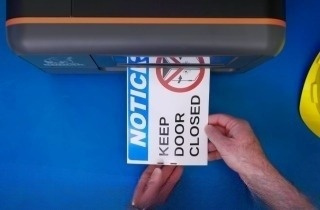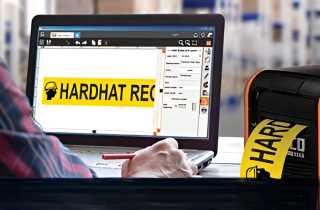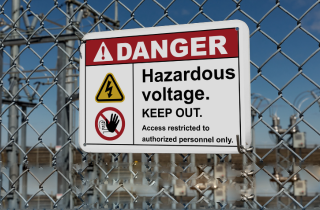
One moment of distraction in any workplace and chaos can ensue. Throw in some heavy, rapid forklifts and workers bustling through, and chaos can turn into a severe accident that results in injury or death. There are simple activities that help keep forklifts operating smoothly and people out of harm's way. A combination of those activities and visual communication makes any facility safe and efficient.
Forklift Risks
Forklifts are not wild death machines, but workers do need to be cautious when operating or working near them. That means no horseplay, being attentive, and taking safety seriously. In 2018, forklifts and other types of workplace truck incidents killed 115 workers, according to the Bureau of Labor Statistics. That was a 55.4% increase from the previous year. In 2019, OSHA's Powered Industrial Trucks Standard (1910.178) was the seventh most cited standard with 2,093 violations.
According to Kyle Thill of Toyota-Lift Minnesota, when it comes to safety, there are still a few pain points businesses need to hurdle.
A few items that are important to assess in and around forklift work areas include:
- Check the structural integrity of racks. Examine them for safe storage and stacking.
- Check exits for obstructions and people.
- Make sure seat belts are in good working order and use them consistently.
"The least favorite topic of operators is seat-belt usage," Thill said. "When a truck tips, the seat belt keeps the operator in his seat, helping him/her avoid what is called the flyswatter effect. Without a seat belt, they often try to jump from the truck and are generally caught between the overhead guard and the ground."
Another overlooked hazard is damage to equipment or infrastructure. Be sure to evaluate the facility and equipment daily and replace or repair damage to ensure accidents and more damage do not occur.
Innovation is changing forklift and warehouse safety as businesses drive into the future. One new additional safety feature on the tops and sides of forklifts are colored safety lights. The idea is that people will be able to see when a forklift is nearby, even when there are high rows or aisleways, or blind corners.
Give Workers Direction
In noisy environments, visual safety instructions are helpful for forklifts and pedestrians. Here are a few ways visual cues can keep the workplace safe and efficient:
- Signs: Mark overhead walkways for forklift load height clearance. Signs can alert workers to areas where forklifts are in operation and serve as traffic reminders, such as speed limits and stops.
- Labels: Forklifts should have labels on them to remind workers of load limits, wear their seatbelt, and maintain a three-point contact when entering or exiting. Labels also help remind drivers of important safety instructions, such as when to lower lifts and shut off the power.
- Floor marking: Let operators know which paths they should use to drive in and around the worksite using industrial floor marking tape. Create a traffic path for vehicles and a walking path for pedestrians. Mark work area boundaries for equipment and machinery as an additional pre-entry safety notice. Floor signs can also be helpful tools to alert workers to stops, warnings, PPE, and social distancing reminders.
Workplaces can keep forklifts and workers safe and moving efficiently by separating people from hazards, marking aisles and passageways, and establishing safe zones and other specific traffic uses. Visual communication is also a key component of facility 5S systems. Regularly assess the worksite to see where improvements can be made. Sustaining is easier when workers follow through on daily forklift inspections as part of a job hazard analysis. This helps the flow of operations. Support high functioning operations by keeping all workers trained on daily traffic, forklift, and work area tasks.
Related Resources

Training, Communication Essential for Forklift Safety
Communication and training on a routine basis are important in maintaining forklift safety, operating a ...
Read
Five Easy Ways to Enhance Loading Dock Safety
Warehouses are busy work environments. Keep loading dock workers moving efficiently and safety using these ...
Read
Use Forklift Safety That Sticks
There is no shortage of work for forklifts in material handling and other industries. Injuries and accidents ...
Read.png)





